English Words in Action, Group E
(a variety of English words which have developed through history and are currently used in our modern age)
Simply click on this banner (or the following link) and you will be on your way to stimulate your brain for greater word comprehension with quizzes based on some of the words in this unit.
2. To make inroads, to invade, to take over: The desert is encroaching on the grassland.
The hedge of Dustin's neighbor is encroaching on his property.
The ocean is slowly encroaching on the shoreline.
3. Etymology: from Old French en-, "in" + crochier, "to hook"; literally to get a hook into something that belongs to another person.The related French word croc [pronounced, CROW], "hook" doesn't go back to Latin but to Germanic origins and it is related to Old Norse krokr, "hook", and to English crook
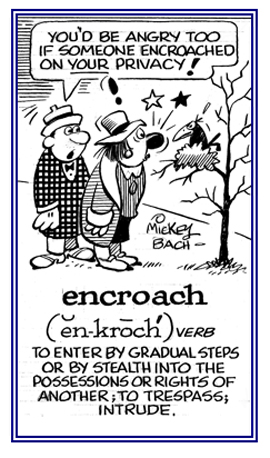
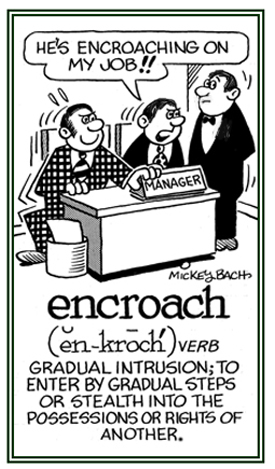
Go to this Word A Day Revisited Index
so you can see more of Mickey Bach's cartoons.
Once the new Iranian system of encroachers become operational, and the government's restrictive network goes into effect, ordinary Iranians will wake up to a more censored internet.
Greg is not happy that his job is causing so many encroachments on his family life.
2. A gradual advance beyond normal or acceptable limits: Erin is concerned about the encroachment of computer games on her son's life.The small farmers of the agricultural area were resisting the encroachments of wealthy corporations that were trying to buy their farmlands.
The new censorship laws restricting access to the Internet by the government of Iran are encroachments on the freedom of the Iranian people to communicate with the rest of the world.
Iran has prevented access to services like Facebook and Twitter before, but this time the encroachments appear to be particularly widespread.
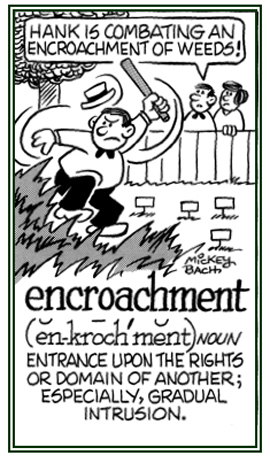
Go to this Word A Day Revisited Index
so you can see more of Mickey Bach's cartoons.
2. To cover or to shelter; to hide securely: Sean ensconced himself in the next room in order to eavesdrop on the conversation that was going on out in the hall.
To protect herself from pickpockets, Tamika ensconced her cellphone in her inside-zippered pocket so no one could take it.
3. Etymology: "to cover with a fort", from en- "make, put in" + sconce, "small fortification, a shelter"; probably from Dutch schans, "earthwork".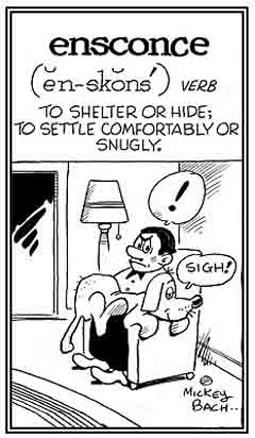
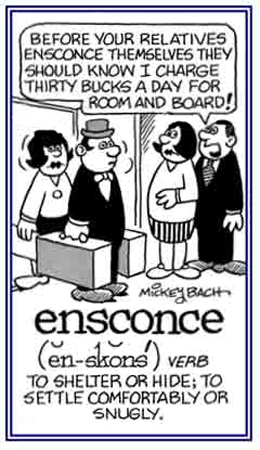
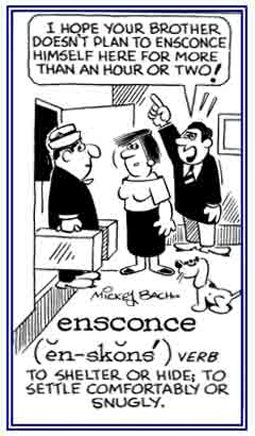
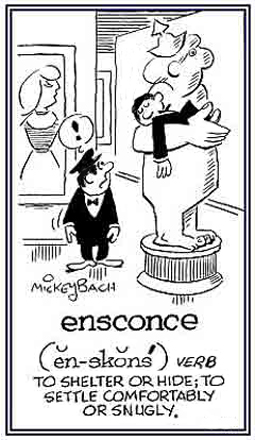
Go to this Word A Day Revisited Index
so you can see more Mickey Bach illustrations.
2. To put or to hold in slavery, to subjugate or to bring under control: Harlan was enthralled too much by various superstitions.
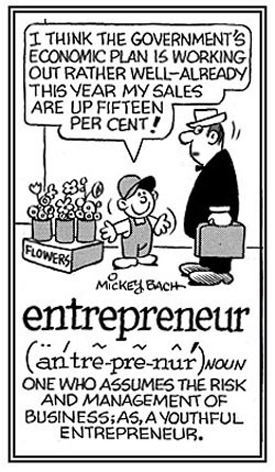
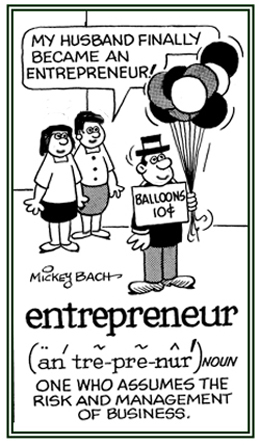
Go to this Word A Day Revisited Index
so you can see more Mickey Bach illustrations.
2. The conditions and influences that affect the growth, health, progress, etc. of someone or something: Maude grew up in a loving environment.
A happy family provides a loving environment for its children.
3. Etymology: from French environ, "around"; so, environment is the total of the things or circumstances around people and nature; and the environs are the "surrounding neighborhood of a place".James and Mark were told that such escapades are contrary to acceptable behavior and so they would have to remove the images from the building.
2. Etymology: from the Vulgar Latin verb excappare, "to escape"; from the Latin prefix ex- + Late Latin cappa, "head covering" or "cloak".2. Abstain from, forgo, give up, stay away from; something that is unworthy or injurious: Many people need to eschew food that makes them overweight and even unhealthy.
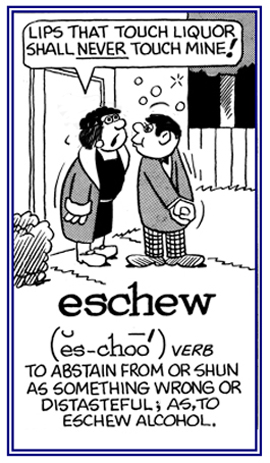
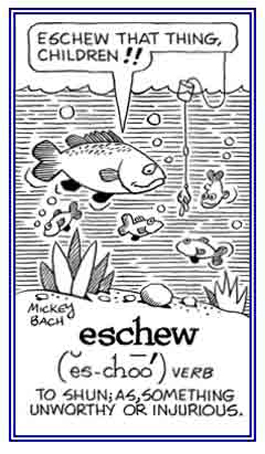
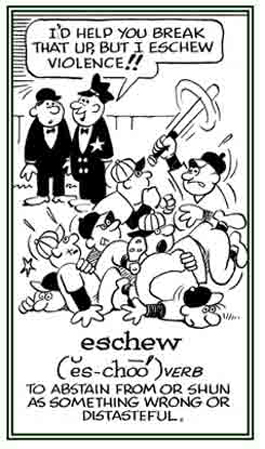
Go to this Word A Day Revisited Index
so you can see more Mickey Bach illustrations.
Hayden put his rent payment in escrow until the landlord fixed the broken water pipes.
The company put the workers' salaries in escrow pending a settlement in wage increases.
2. Etymology: from Middle French escroe, "scrap, scroll" and it was also borrowed through medieval Latin scroda into Old French as escroe, where its meaning of "cut piece, strip" evolved into "strip of parchment".It is common in American real-estate law for all types of documents to be escrowed; that is, holding them with the understanding that they will not be released until certain actions have been accomplished or concluded.
Links to all of the groups of English words in action, Groups A to Z.
You may see the bibliographic list of sources of information for these words in action.

